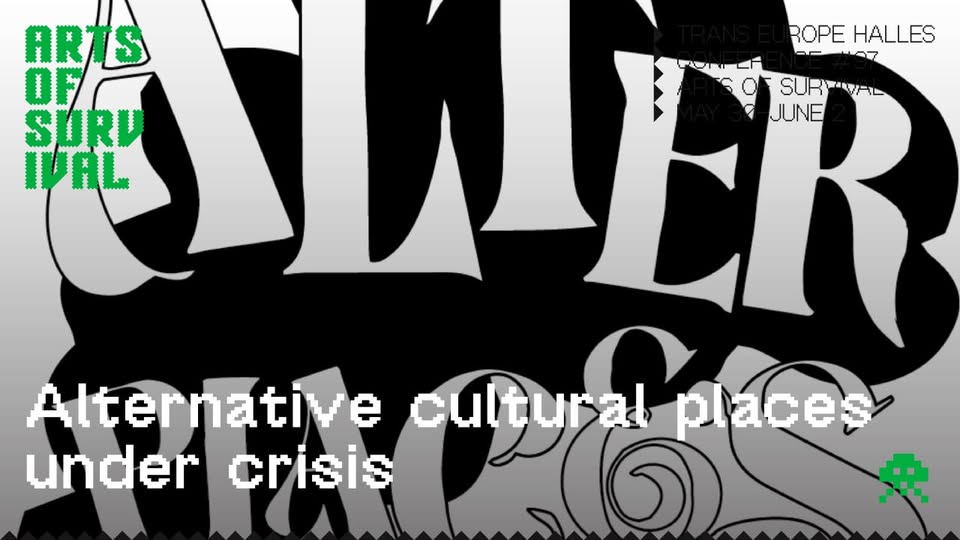Panel discussion Alternative cultural spaces under crisis: resilience, renewal, challenges

On May 31, 2024, in the city of Tartu, Estonia, the second panel discussion Alternative Cultural Spaces in Times of Crisis: Resilience, Renewal, and Challenges will take place.
The discussion is part of the Alter-Places project, coordinated by IZOLYATSIA and the Canadian partner Long Winter / DIY Space Project. The project is dedicated to exploring sustainable methods of rebuilding cultural infrastructure. This panel focused on the survival and evolution of alternative cultural spaces and how these communal hubs are adapting to rapid changes and ecological, political, and social threats. This hybrid session explored some specific challenges relevant to grassroots and community-driven cultural spaces at this moment: conflict and occupation, cultural oppression, issues of equity, physical displacement, economic instability, and lack of physical space.
In this critical session, focused on the survival and evolution of alternative cultural spaces, the discussion revolved around how these communal hubs are adapting to rapid changes and ecological, political, and social threats, often on the frontlines of change in the current climate. During the hybrid session, several concrete challenges faced by grassroots cultural spaces were addressed: war and occupation, cultural repression, issues of equality, physical displacement, economic instability, and lack of physical space. Cultural leaders from around the world joined the discussion, sharing progressive approaches, creative strategies, and effective tactics developed by their communities in response to these challenges.
Panel Participants:
- Anna Karnaukh — co-founder and director of the creative agency Lanka.pro, focused on strengthening Ukraine’s cultural and creative ecosystem
- Moroti George — director/curator of Gallery Gachet, Master of Contemporary Art at Simon Fraser University
- Jan Deis — head of the voluntary organization NGBG, which focuses on improving access to cultural resources, spaces, and networks for people without formal cultural education
- Natassa Dourida — socio-cultural engineer in Athens, structural engineer (NTUA, 2008) with an MSc in Monument Restoration (Msc Arch, NTUA, 2014)
Moderator — Amy Gottung — director, producer, consultant, and writer from Canada.
Moroti George — curator, writer, and educator based in Vancouver, BC. He is the curator at the Black Arts Centre in Surrey, BC, and the director/curator of Gallery Gachet in Downtown Vancouver. His research and curatorial practice primarily focus on envisioning accessible and community-centered art spaces and highlighting the stories of individuals and communities creating new ways of being that challenge the Western status quo.
At the core of his approach is the belief that space can reflect the agency and lived experiences of individuals whose bodies and identities are typically not acknowledged, respected, or represented in traditional art and academic environments. Through exploration of language, archives, image-based media, history, and cultural theory, Olumoroti’s curatorial practice is grounded in a passion for non-hierarchical knowledge production, which could pave the way for new approaches to cultural production and the politics that shape how different bodies perceive and understand the world.
Jan Deis — former troubadour and Englishman, now a Swedish citizen, and chair of the NGBG organization, a voluntary association that organizes events and campaigns for the right of grassroots cultural actors to access public spaces. The organization operates on principles of full transparency, radical inclusivity, hyperlocality, direct democracy, and focuses on organic and sustainable growth.
Among its biggest achievements are the annual NGBG Gatufest street festival and the campaign to designate the area as Kulturljudzon, a "cultural noise zone," where industry and culture can make noise without complaints from residents.
Anna Karnaukh — co-founder and director of Lanka.pro collective. Lanka.pro is a team of four female co-founders focused on creative economy development in Ukraine and ecosystemic solutions inspired by culture. The main areas of work include: designing projects, facilitation, research, education, and capacity building. Established in 2022, Lanka.pro operates in Kyiv and Lviv.
Natassa Dourida — structural engineer (NTUA, 2008) with an MSc in Monument Restoration (NTUA, 2013). As a fellow at the Robert Bosch Foundation (StArt, 2015), she trained in cultural management and proposed a concept for a sociocultural experiment aimed at motivating creative communities to collaborate with the owners of 11,000 abandoned heritage buildings in Athens to revive the city’s heritage.
The project is implemented with the support of the Creative Europe programme of the European Union.